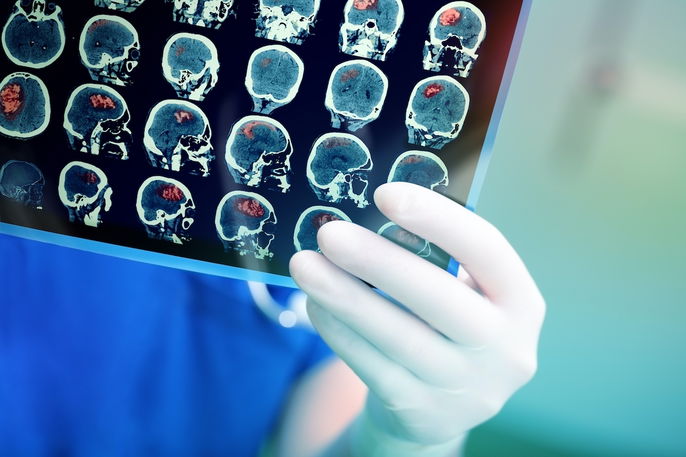A concussion is an injury that affects all areas of the brain and temporarily alters the way your brain function. This condition can cause symptoms like memory loss, reduced concentration and decreased balance.
A concussion commonly occurs after serious trauma, like a car accidents, but it can also happen with a minor fall or a blow to the head from contact sports, like football or rugby. Even mild trauma to the head can lead to a concussion, which is why all head injuries should be assessed.
All concussions can potentially injure the brain and can lead to long-term effects like permanent memory loss or epilepsy if the blow to the head is intense. These effects are associated with further complications, like brain swelling and bleeding, which require urgent medical attention.

Common symptoms
The main symptoms of a concussion include:
- Constant headache
- Temporary memory loss
- Dizziness and confusion
- Nausea and vomiting
- Slow or altered speech
- Excessive fatigue
- Excessive sensitivity to light
- Difficulty falling asleep
These symptoms will develop after injuries like falls, blows to the head or car accidents. These symptoms can be mild and tend to resolve on their own within a few days.
When to see a doctor
You should proceed immediately to an emergency room immediately when:
- The concussion occurs in a child
- Vomiting occurs immediately after the injury
- Fainting occurs
- A headache appears that worsens over time
- Difficulty thinking or concentrating.
These are the most serious symptoms that should be evaluated as soon as possible by a doctor. You are also advised to seek urgent medical attention if you experience symptoms that do not resolve within 2 days.
Possible causes
The main causes of a concussion are:
- Falls or direct blows to the head;
- Car, motorcycle or bicycle accidents;
- Contact sports, such as football, basketball, rugby, boxing or wrestling;
- Physical violence, such as assaults or fights.
Any of these conditions can cause jolting, or abnormal acceleration, deceleration or rotation of the brain, which can alter how your brain functions.
Treatment options
Treatment for a concussion should be guided by a neurologist, as it will vary depending on the degree of injury.
The main treatments for a concussion are:
1. Rest
Rest may be recommended by your doctor for the first 24 to 48 hours after the head injury or trauma.
After this period, you can gradually return to normal activities, however, you should monitor for any new symptoms or worsening of previous symptoms.
Athletes should avoid sports until cleared by their doctor.
2. Hospital admission
Serious cases of concussions may require hospitalization for observation.
This is because there is no specific treatment for concussions, and hospitalization can allow for close monitoring in case any sudden symptoms arise.
Severe brain injuries that lead to memory loss or coma may require a longer hospitalization period for ongoing evaluation and treatment with IV medication.
3. Medication
The use of analgesic medications, such as acetaminophen, may be indicated for headaches and discomfort.
However, anti-inflammatories such as ibuprofen or acetylsalicylic acid should be avoided as they increase the risk for hemorrhaging in the brain.
Possible complications
Complications from concussions depend on the severity of the brain injury, but in most cases, the patient will not have any sequelae after treatment. In more severe cases, complications such as epilepsy, frequent dizziness, constant headache, vertigo or memory loss may occur.
The after-effects of a concussion may gradually reduce over time, although some may require treatment.





























